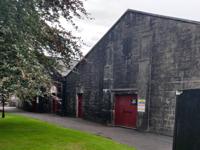What is Burns Night on January 25th?
Contents

Who was Robert Burns
Robert Burns was a Scottish poet born on January 25, 1759 in a village called Alloway. He has written hundreds of poems, songs and letters. Scots sing “Auld Lang Syne” on New Year’s Day. He died on July 21, 1796 at the age of 37. His birthday is celebrated as Burns Night on January 25 across Scotland and throughout the world.
Burns night celebration
One of the main ways Burns Night is celebrated is with a very traditional meal. These include Scottish haggis served with mashed turnips (called “neeps”) and potatoes (called “tatties”), also traditionally mashed.
Haggis is a Scottish specialty and consists of a sheep’s stomach, called a paunch, stuffed with heart, lungs, liver, suet suet, onions and oatmeal. Haggis is spicy with pepper, and the oatmeal gives it a slightly heavier texture than sausage. There are also traditional puddings. For example shortbread or a creamy dessert called Cranachan.
People who really like traditional things might even follow an official order for their evening, with speeches, toasts, poetry and music at specific times. Others might opt for a quieter evening with a poetry reading or two. There may also be dancing and traditional Scottish music played on bagpipes. Regardless for the toasts whisky is traditionally drunk.
How to celebrate Burns night
While the details of each event vary, the core of each Burns Supper includes the following traditional elements:
- The guests gather at or around the table and the Burns poem “Selkirk Grace” is read in the original Scottish to set the mood.
- Usually the meal is preceeded by a soup course. Cullen Skink (fish soup) or Cock-o-Leekie (chicken and leeks) are very popular
- Haggis as the main course by a kilt-wearing bagpiper, the haggis is ceremonially carried on a platter from the chef to the speaker’s table, where the host recies the poem to a Haggis.
- Dessert is similarly traditional (Cranachan, or sometimes a whiskey trifle). Oatcakes and cheese are guaranteed
- Speeches are given, songs are sung and poems are recited, the latter come from Robert Burns’ pen or follow his traditional style
- Burns Supper is concluded with Auld Lang Syne
At a formal Burns Supper (usually hosted by a club, society or some sort of local organisation) you will usually find guests dressed for the occasion, which in Scotland often means wearing kilts, tweed and various tartans, a distinctive representation of one’s own family heritage or a broader clan.
The Selkirk Graecv
The Selkirk Grace, traditionally spoken at the beginning of the meal, is often attributed to Burns, but a version of it was known a century earlier:
Some hae meat an canna eat, And some wad eat that want it; But we hae meat, and we can eat, And sae the Lord be thankit.
Why do the Scots celebrate Robert Burns?
Sometimes called Scotlands most famous son Robert Burns was a makar (a term from Scottish literature for a poet or bard) who wrote primarily in Scots. Robert Burns is considered one of the greatest and most influential poets in Scotland alongside Walter Scott (1771 – 1832). In addition to numerous poems, political songs and texts, Burns is above all - also beyond Scotland - as the author of the famous Auld Lang Syne, which is traditionally sung in the Anglo-Saxon-speaking world at the turn of the year. Accordingly, this event definitely belongs in the category of literary holidays. Given this caliber, it’s no wonder that the Burns Supper tradition is celebrated not only in Scotland itself, but also in Canada, Northern Ireland, Australia and the United States. Namely wherever families with Scottish roots have settled.
The first burns supper
The first Burns Supper was said to have been held by the poet’s friends at Burns Cottage in Alloway, South Ayrshire on 21 July 1801, the fifth anniversary of his death. A club of Burns’ admirers held their first Burns Supper on January 29, 1802, in the mistaken belief that this was his birthday; a year later they discovered that he had been born on January 25th and the date was switched
Burns Suppers are particularly popular in Dunedin, New Zealand. Burns’ nephew, Thomas Burns, was a Presbyterian minister who oversaw the founding of Otago and landed in Dunedin in 1848.

